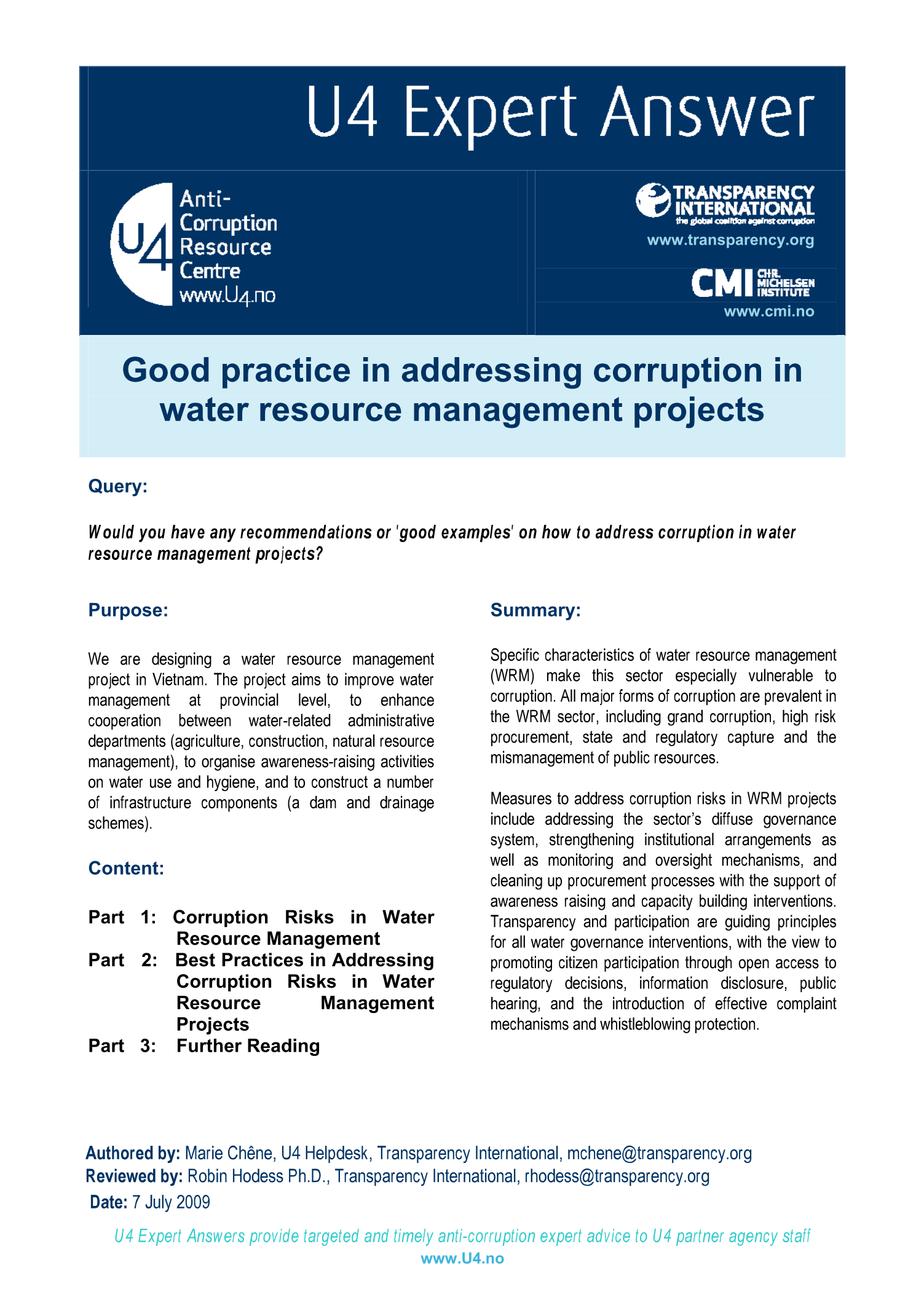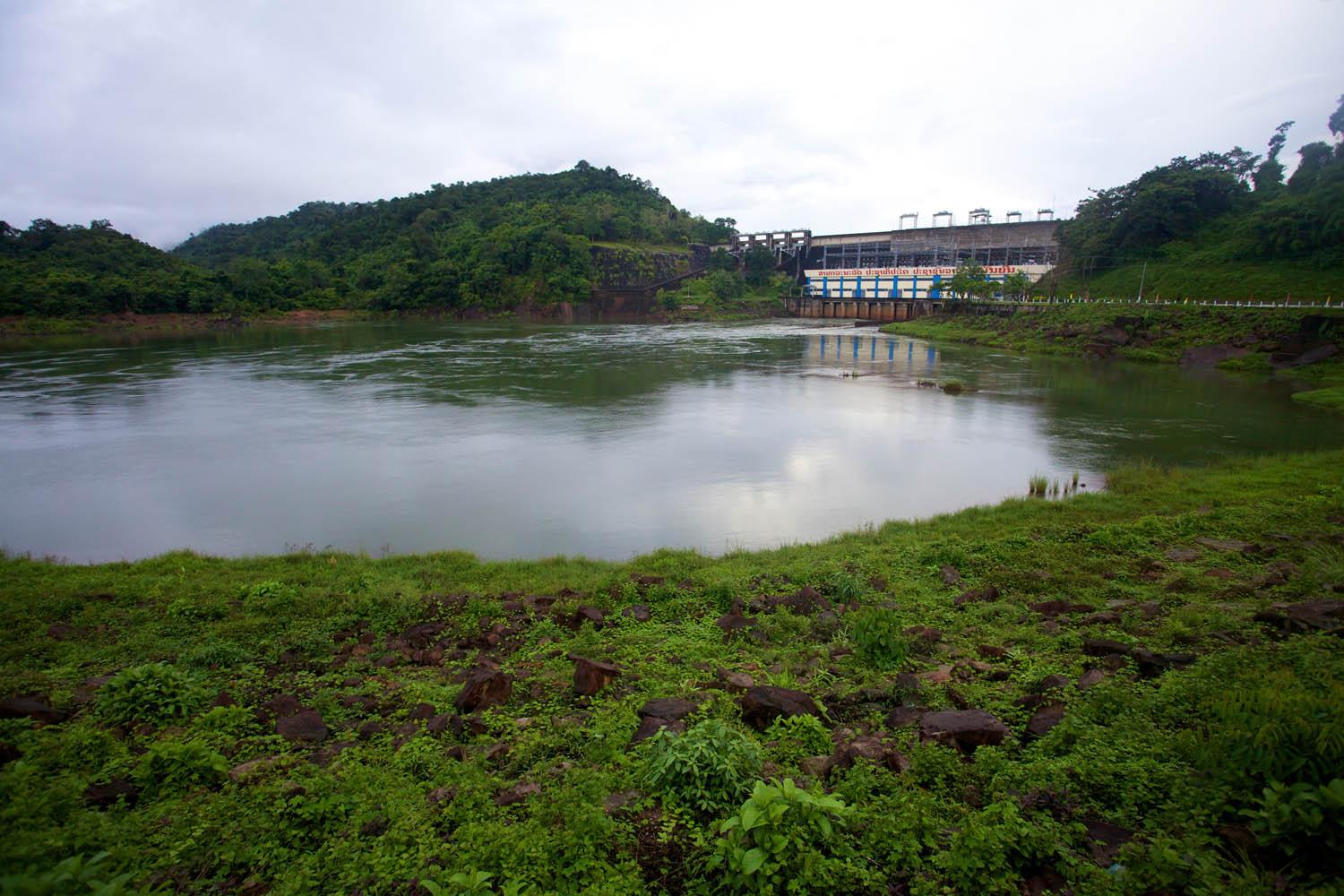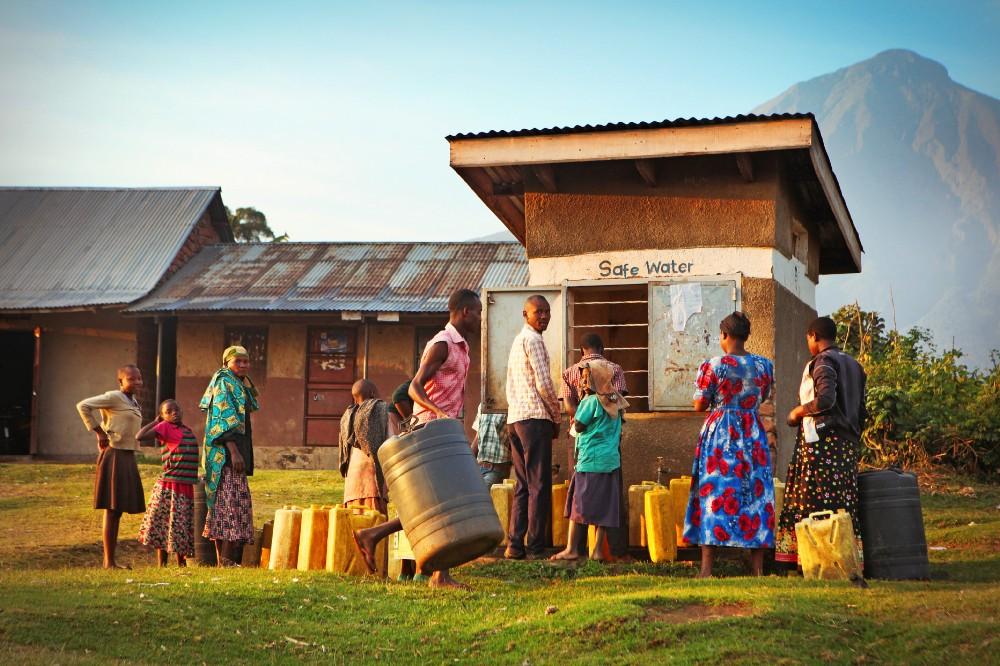U4 Helpdesk Answer
Good practice in addressing corruption in water resource management projects
Specific characteristics of water resource management (WRM) make this sector especially vulnerable to corruption. All major forms of corruption are prevalent in the WRM sector, including grand corruption, high risk procurement, state and regulatory capture and the mismanagement of public resources. Measures to address corruption risks in WRM projects include addressing the sector’s diffuse governance system, strengthening institutional arrangements as well as monitoring and oversight mechanisms, and cleaning up procurement processes with the support of awareness raising and capacity building interventions. Transparency and participation are guiding principles for all water governance interventions, with the view to promoting citizen participation through open access to regulatory decisions, information disclosure, public hearing, and the introduction of effective complaint mechanisms and whistleblowing protection.

Cite this publication
Chêne, M. (2009) Good practice in addressing corruption in water resource management projects. Bergen: U4 Anti-Corruption Resource Centre, Chr. Michelsen Institute (U4 Helpdesk Answer Helpdesk)
Disclaimer
All views in this text are the author(s)’, and may differ from the U4 partner agencies’ policies.
This work is licenced under a Creative Commons Attribution-NonCommercial-NoDerivatives 4.0 International licence (CC BY-NC-ND 4.0)


